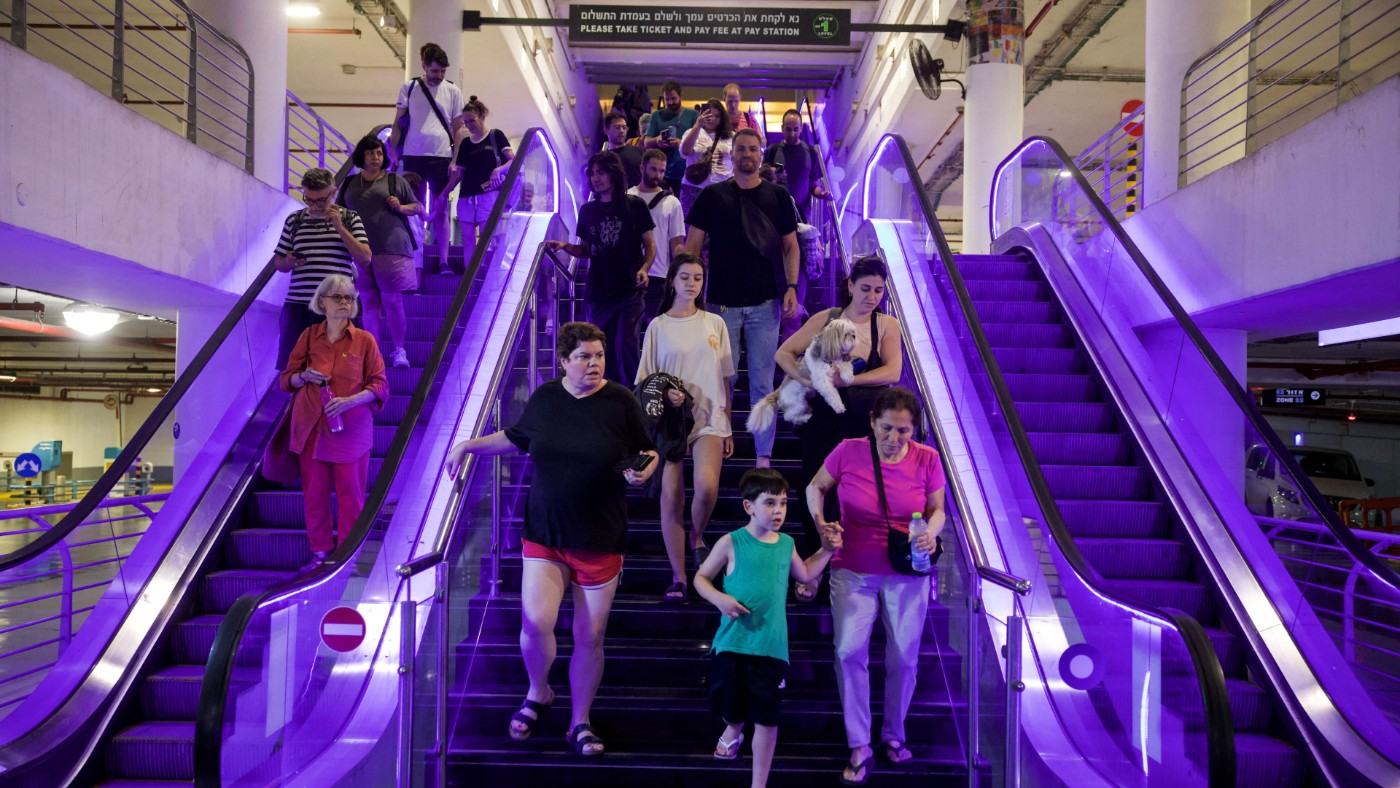On a typically bustling Sunday afternoon, Ibn Gabirol Street in Tel Aviv falls eerily silent. Normally alive with foot traffic and the sounds of vehicles, the scene has shifted dramatically following Israel’s military operations against Iran that began on Friday.
In response to Israeli airstrikes, Tel Aviv remains in a state of heightened alert, with Defence Minister Israel Katz declaring a state of emergency. This has led to widespread business closures, affecting cafes, shops, schools, and public transport, which are either shuttered or functioning on reduced hours.
Katz did not hold back in his condemnation, asserting, “The boastful dictator from Tehran has become a cowardly murderer who fires deliberately at the civilian home front in Israel to deter the IDF [Israeli army] from continuing the attack that is crumpling its capabilities. The residents of Tehran will pay the price, and soon.”
The vice rector of Tel Aviv University echoed this sentiment, emphasizing that Israel’s military objective must be “the elimination of the regime in Iran.”
As of Monday, the conflict has resulted in the deaths of 13 individuals in Iran, while over 220 have died in the Israeli strikes, including 70 women and children.
Amit, a resident of Tel Aviv, shared his anxiety: “These are the most stressful moments since the war began.”
The Iranian missile assaults have inflicted significant damage, particularly in Gush Dan, a central area that encompasses Tel Aviv and houses around four million people. Israeli authorities have restricted all travel abroad and have barred residents from returning if they are outside the country. Hundreds have sustained injuries due to missile strikes, with reports showing extensive destruction to homes.
Reports from The Marker indicate a surge in panic buying, with many Israelis rushing to grocery stores, resulting in shortages of essential items like milk, eggs, vegetables, and water.
Eitan and Amit, a young couple in Tel Aviv, recounted their fears, saying, “For the first time since the beginning of the war, we went down to the shelter with the emergency kit we had prepared. We saw the hits and the pictures.”
Daniel, a mother of two, described the prevailing uncertainty as she sat in a usually vibrant square. “There is a sense of uncertainty. You don’t know what will happen and you can’t build a routine,” she noted. “It’s a sense of survival. The missiles are like Russian roulette. It’s very hard to live in this country, but I believe in the army and our people.”
Niv, a football coach, told reporters that he and his partner sought refuge at her mother’s house outside the city. “This is a more serious war than it has been in the past, and there is no protection in most buildings in Tel Aviv,” he said. He expressed concerns over the lack of shelters in Israel’s Arab communities, asserting that the Iranian missiles have exposed the inadequacies of safe rooms.
In the early hours of Sunday, Bat Yam, a city south of Tel Aviv, was rocked by missile strikes that claimed the lives of six people and injured dozens. In the northern Palestinian town of Tamra, four family members were killed when a missile struck their home.
Tzvika Brot, the mayor of Bat Yam, described the desolation, saying, “The destruction is really something we haven’t known before. Massive destruction, like in a scene from a movie.”
Shai Aharonovitch, director of the Israel Tax Authority, estimated the damage from the conflict could reach approximately a billion shekels ($286 million). “It is still too early to determine the exact numbers, of course, but the damage is enormous,” he stated.
Prime Minister Benjamin Netanyahu addressed the aftermath of the strike in Bat Yam, having faced criticism for taking refuge in a bunker. On his social media account, he warned, “Iran will pay a very high price for the murder of women, children, and innocent civilians, and it will happen soon.”
Public sentiment in Tel Aviv is mixed. Daniel expressed her fears but felt it was not the time for political critique, stating, “I wouldn’t vote for this government, but at this time I have to trust them.”
Niv offered support for Netanyahu, asserting, “I think Netanyahu has been performing exceptionally well so far. He is leading us to a situation where we won’t have any more enemies.”
Conversely, Eitan and Amit questioned the strategic vision behind the conflict. “A war must end with a strategic solution,” Eitan argued. “If the result is that Iran doesn’t have a nuclear weapon, then the price is bearable. I think it’s worth the price. There was no other option.”

